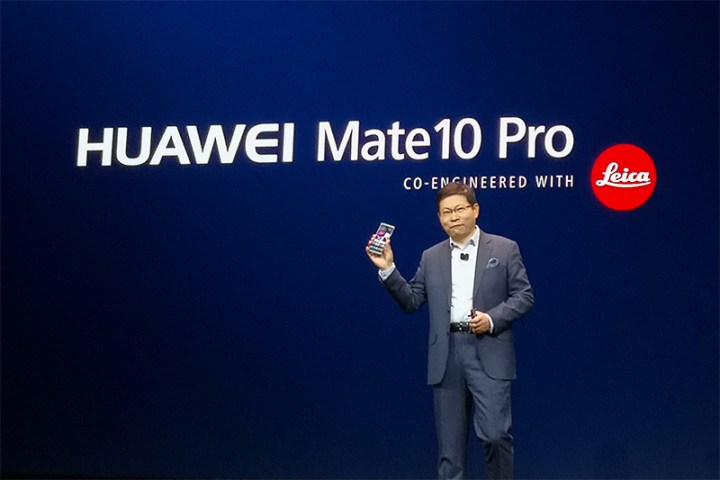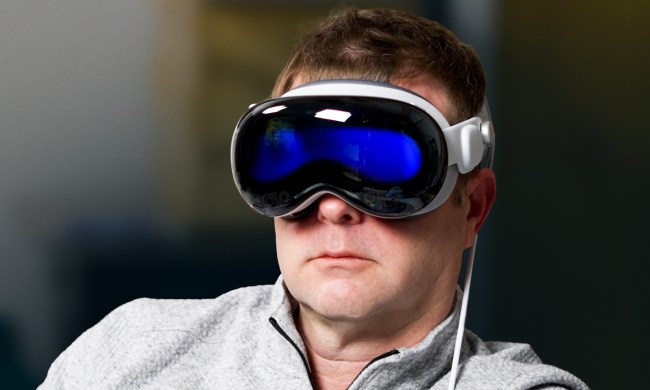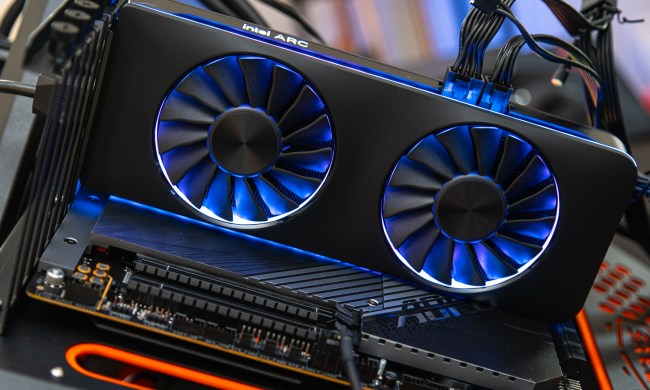
But at the end of the day, a lot of products we see shouted from the rooftops at CES never really change our lives. We go home to our 1080p TVs, our ’99 Toyota Corollas, and our 20-year-old Kenmore refrigerators, and the future seems like it never comes.
That’s not always the case, though. Some of the most consequential CES announcements get outshined by 146 inches of blazing MicroLEDs, even when they mean big changes for you in the year ahead. Fortunately, we’re here to shine a light on them. These are the products, technologies, and innovations that will change the course of tech in the year ahead.
Alexa is coming to Windows 10

Maybe Microsoft should have seen this one coming. As Alexa popped up in more speakers, fridges, microwaves, and lamps, it was only a matter of time before it showed up on the desktop operating system that a vast majority of the world uses. At CES 2018, HP, Lenovo, Asus, and Acer announced that they will release Alexa-compatible laptops.
If you already live in the Echo ecosystem, this is great news. Your next laptop (or maybe your boring old one, with a software update) now represents yet another way to turn on the lights, turn up the heat, and add profane items to your grocery list. And every Echo will soon represent a new way to interact with your PC. “Hey Alexa, send that spreadsheet I’ve been working on to Andy.” It’s not reality yet, but it could very well happen this year.
As for Cortana, things suddenly look much grimmer now that it faces a more capable AI on its home turf. Like Samsung’s competing Bixby or Hound by SoundHound (it’s a real thing), Cortana might be headed to the same dark AI graveyard where Facebook just laid M to rest.
Nvidia and VW, sitting in a tree

CES 2018 brought no shortage of companies boldly declaring that they would usher in our self-driving pod car future, but Nvidia brought less talk and more silicon. The company that already powers Tesla’s bar-setting Model S this year announced both an insane new chip called Xavier, and a new partnership with Volkswagen that will bring it to the masses.
We’ll spare you the teraflop talk, but Xavier basically compresses the computing power of “a trunk full of PCs” to a package the size of a license plate, which should be enough power to unlock true “level five” autonomous driving. That means steering wheel optional – sit in the back and Instagram your way to work.
Xavier may sound far-fetched, but it’s not: It’s coming this quarter. So while you may want to keep the lease on your Kia for 2018, the chip that will make extreme autonomy possible is here, and we could be seeing some wild cars powered by it in the year ahead.
Intel’s new AMD-powered chips

If you buy a mid-tier laptop today, it probably sucks at gaming. Despite promises from Intel every year that its integrated graphics are about to go legit and let you play modern games, most still struggle with games from even a couple years ago. Until now.
Thanks to an incredibly unlikely partnership with AMD, Intel’s next-gen laptop chips will sport Radeon RX Vega graphics, which rival the real-deal gaming prowess of some of Nvidia’s best GeForce cards. That means you don’t need to buy a neon-accented “gaming laptop” just to play some Civ VI in your hotel room.
I’ll let gaming editor Matt Smith spell out all the compelling implications, but for anyone planning to purchase a new laptop this year, this is spectacular news. Even if you don’t buy high-end, the next breed of processors are going to make it a much more capable machine.
Qualcomm QC5100

Booooring. Go ahead, get it out of your system. We’ll concede that silicon ranks up there with advanced calculus on the “fun to discuss at parties” scale, but Qualcomm’s newest Bluetooth chip is going to unlock some radical devices you will almost certainly want to buy this year.
Here’s the sad truth: Almost all truly wireless earbuds suck right now. Go back and read any of our reviews, and we consistently harp on the same caveats: Battery life is abysmal, and they’re way too finicky and hard to pair.
Qualcomm promises to solve both of these issues with the QC5100, a tiny chip that shrinks all the essential processing for a pair of Bluetooth ‘buds down into one miniscule package. It’s three times faster than previous versions thanks to three cores instead of one, uses 65 percent less juice, and it’s compatible with Bluetooth 5, which means a step forward in range, reliability, and sound quality thanks to the gold-standard AptX HD.
All that processing power also means the chip can enable features like advanced noise cancellation, gesture control, fitness tracking, and all the other bells and whistles you’ll demand out of a pair of $200 earbuds. Look for devices powered by this beast arriving on shelves mid-2018.
Huawei is barging into the U.S. one way or another

Poor Huawei. After trying to crack into the American phone market for years, and finally getting a big break when AT&T agreed to begin carrying its phones, Huawei got some bad news at CES.
AT&T backed out.
Due to some apparent behind-the-scenes political bullying, Huawei phones will not be showing up at your local AT&T store anytime soon. Locked out at the front door, Huawei could have given up on its dreams of American conquest, but that’s not how the $20 billion telecom giant plays. Instead, it’s breaking a window and going in the side.
On Tuesday, Huawei announced that it will begin selling the Mate 10 Pro in the U.S. for $800 in February, through big-name retailers including Best Buy, Microsoft stores, Newegg, B&H Photo, and of course, Amazon. Each of them will give away $150 gift cards with the phones, which reduces the effective price to a more tempting $650.
That means the Mate 10 Pro we raved about in November is a lot easier and cheaper to get in 2018, if you live in the States. And we’re hoping it’s just the beginning of Huawei’s American offensive. How about some deals on the Honor View 10 and Honor 7X, Huawei? If this builder of some of our favorite budget phones can establish a foothold in the U.S., we’ll all be a lot better off for it. And so will our wallets.




